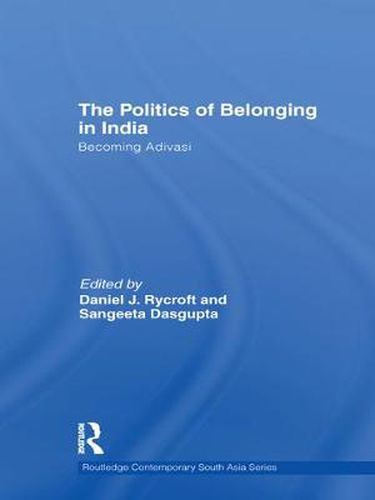Readings Newsletter
Become a Readings Member to make your shopping experience even easier.
Sign in or sign up for free!
You’re not far away from qualifying for FREE standard shipping within Australia
You’ve qualified for FREE standard shipping within Australia
The cart is loading…






Since the 1990s, the Indigenous movement worldwide has become increasingly relevant to research in India, re-shaping the terms of engagement with Adivasi (Indigenous/tribal) peoples and their pasts. This book responds to the growing need for an inter-disciplinary re-assessment of Tribal studies in postcolonial India and defines a new agenda for Adivasi studies. It considers the existing conceptual and historical parameters of Tribal studies, as a means of addressing new approaches to histories of de-colonization and patterns of identity-formation that have become visible since national independence.
Contributors address a number of important concerns, including the meaning of Indigenous studies in the context of globalised academic and political imaginaries, and the possibilities and pitfalls of constructions of indigeneity as both a foundational and a relational concept. A series of short editorial essays provide theoretical clarity to issues of representation, resistance, agency, recognition and marginality. The book is an essential read for students and scholars of Indian Sociology, Anthropology, History, Cultural Studies and Indigenous studies.
$9.00 standard shipping within Australia
FREE standard shipping within Australia for orders over $100.00
Express & International shipping calculated at checkout
Since the 1990s, the Indigenous movement worldwide has become increasingly relevant to research in India, re-shaping the terms of engagement with Adivasi (Indigenous/tribal) peoples and their pasts. This book responds to the growing need for an inter-disciplinary re-assessment of Tribal studies in postcolonial India and defines a new agenda for Adivasi studies. It considers the existing conceptual and historical parameters of Tribal studies, as a means of addressing new approaches to histories of de-colonization and patterns of identity-formation that have become visible since national independence.
Contributors address a number of important concerns, including the meaning of Indigenous studies in the context of globalised academic and political imaginaries, and the possibilities and pitfalls of constructions of indigeneity as both a foundational and a relational concept. A series of short editorial essays provide theoretical clarity to issues of representation, resistance, agency, recognition and marginality. The book is an essential read for students and scholars of Indian Sociology, Anthropology, History, Cultural Studies and Indigenous studies.